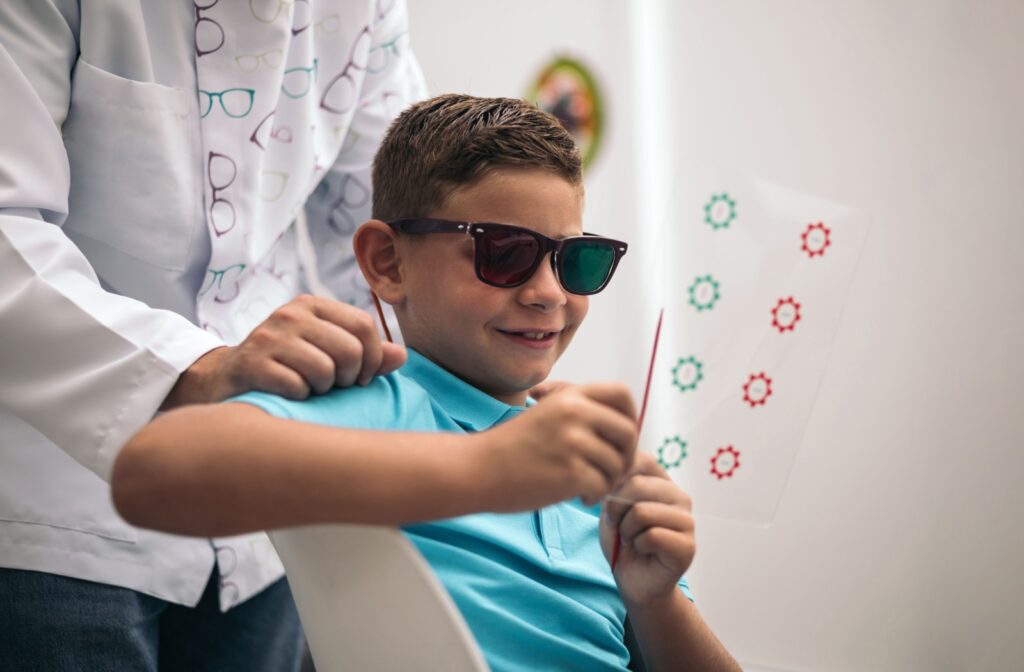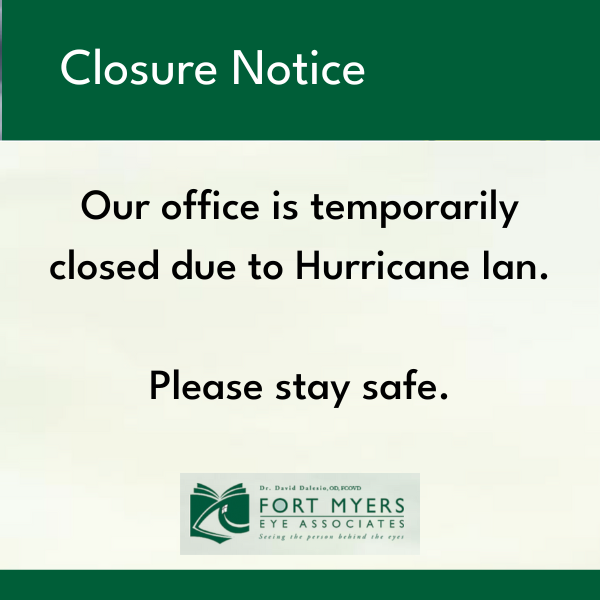After a concussion, vision problems can complicate recovery. Whether it’s blurry vision or trouble focusing, these issues affect your daily life or, for children, make school and playtime a challenge.
While some symptoms improve within days, others may linger, making expert care essential for long-term recovery. The good news? Your eyes and brain are pretty resilient, and most people will see improvement with rest and professional care.
If your vision is still feeling “off,” scheduling an eye appointment can help pinpoint what’s going on and get you on the road to recovery. Sometimes, a little extra help, like vision therapy, can make all the difference.
Why Do Concussions Cause Vision Problems?
Your eyes may seem fine after a concussion, but it’s your brain that needs the time to heal. Vision problems after a concussion typically stem from disruption to the brain’s visual processing systems. Your brain and eyes work together to let you see clearly, track objects, and interpret visual information.
A concussion can interfere with the delicate communication between your brain and your eyes. This can happen due to:
- Swelling
- Stretching of nerve fibers
- Temporary damage to the areas of the brain responsible for vision
Common Vision Issues After a Concussion
Here are some of the most common issues people experience:
- Blurry vision: Images or text can appear out of focus, even for those who’ve never needed glasses before.
- Difficulty focusing: Your eyes may have trouble switching quickly between near and far objects.
- Eye teaming problems: This refers to the inability of both eyes to work together, often causing double vision or depth perception issues.
- Sensitivity to light: Bright environments or screens can leave you feeling overwhelmed or uncomfortable.
- Difficulty reading: You might struggle to track words on a page or lose your place while reading.
- Headaches or eye strain: Extended visual tasks, like watching TV, using a computer, or scrolling on your phone, could lead to discomfort or headaches.
How Long Do Post-Concussion Vision Problems Typically Last?
The timeline for recovery isn’t the same for everyone. For many, vision problems improve within weeks or months, especially with early intervention.
For children, addressing symptoms promptly can prevent setbacks in learning and development, helping them return to their favourite activities with confidence. With early diagnosis, vision therapy, and expert care, most post-concussion vision problems can improve or even resolve completely.
What Can Impact Recovery Time for Vision Problems?
Recovery time depends on several components, including age, the severity of the concussion, and how quickly treatment begins. For example:
- Children and teens may take longer to recover due to their still-developing brains, but rapid intervention can make a big difference.
- Severity of concussion matters too, as more significant injuries often require longer healing times.
- Pre-existing vision conditions (like astigmatism or lazy eye) can prolong symptoms, but they shouldn’t prevent recovery with proper care.
The most important thing? Seeking professional help early. Delayed treatment can intensify symptoms or prolong recovery.
Can Vision Problems Become Permanent After a Concussion?
The thought of permanent vision problems can be scary, but it’s typically the exception rather than the rule. Most post-concussion vision issues improve with treatment. However, without proper care, some problems may persist or worsen over time.
That’s why it’s crucial to take symptoms seriously. If you or your child is experiencing visual changes after a concussion, don’t wait to address them. Schedule an assessment with a trusted optometrist or vision specialist who can evaluate the situation and recommend treatment options.

The Role of Vision Therapy in Post-Concussion Recovery
Vision therapy is a powerful tool for treating concussion-related vision problems. Think of it as physical therapy for your eyes and brain. It involves targeted exercises designed to rebuild the brain-eye connection and improve visual skills.
This treatment can address a variety of issues, such as eye:
- Teaming
- Focusing
- Tracking
Patients often work with trained optometrists who create therapy plans for their unique needs. With consistent effort, vision therapy can turn persistent symptoms into meaningful progress, helping children thrive in school, sports, and daily life, or empowering adults to regain their independence and comfort.
Tips for Managing Vision Problems After a Concussion
While professional care is essential, there are things you can do at home to support recovery and reduce discomfort:
- Take breaks from screens. Limit screen time, take frequent breaks, and consider using blue light-blocking glasses.
- Rest your eyes. If you’re feeling tired, close your eyes occasionally to reduce strain.
- Use proper lighting. Avoid harsh lighting and opt for softer, natural light when possible.
- Wear sunglasses. If light sensitivity is an issue, sunglasses can help reduce discomfort indoors or outdoors.
Most importantly, don’t push through symptoms. Rest and recovery are important after a concussion.
How an Optometrist Can Help With Concussion-Related Vision Problems
If vision problems after a concussion are affecting you or your child, Fort Myers Eye Associates is here to guide you. Starting with a comprehensive eye exam, we’ll identify any underlying issues and create a personalized treatment plan, including options like vision therapy.
High-quality eye care is about improving quality of life. For children, this can mean thriving in school and play, while for adults, it’s about regaining confidence and clarity. Don’t wait to take the next step, book an appointment with Fort Myers Eye Associates.





